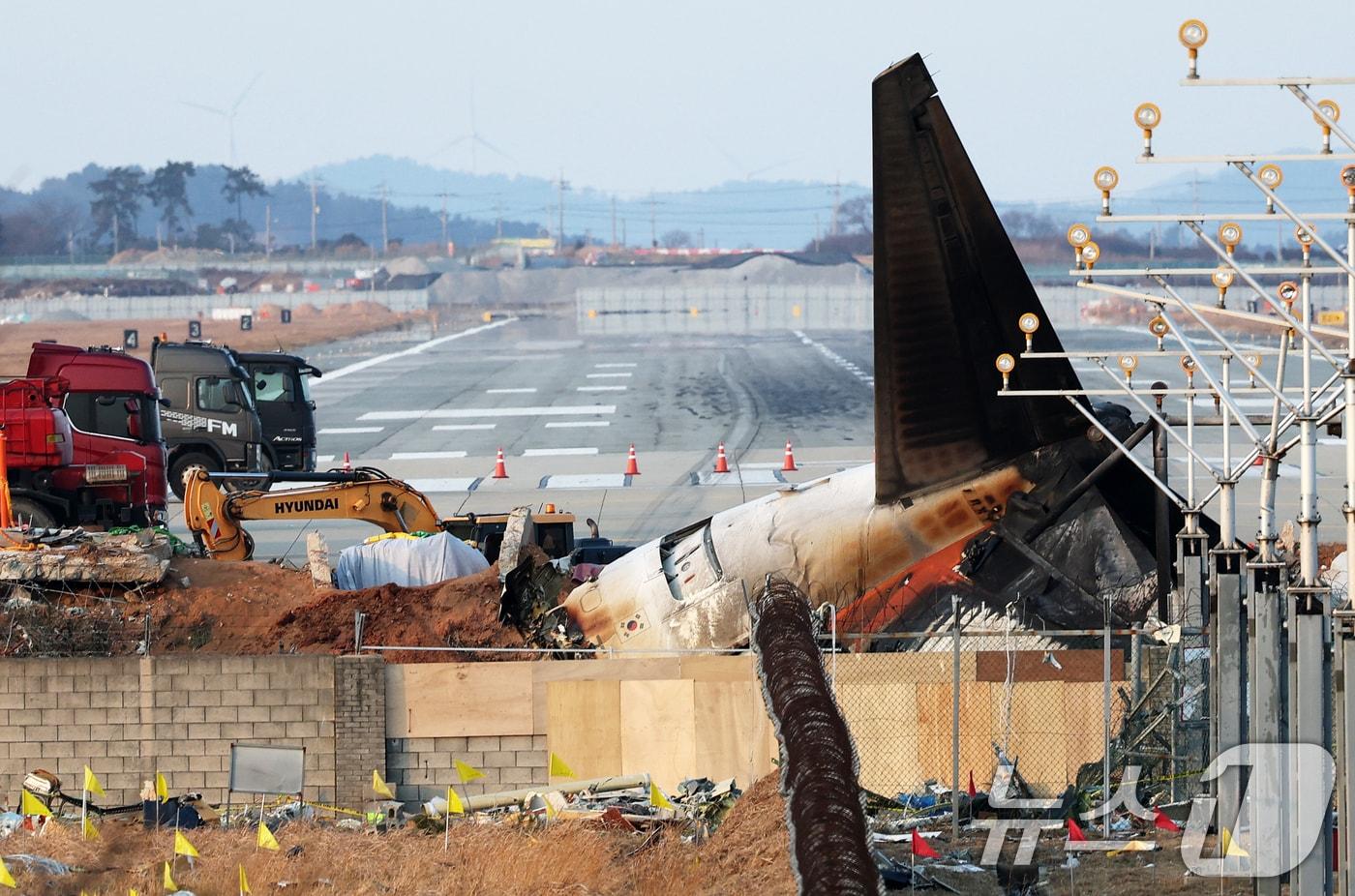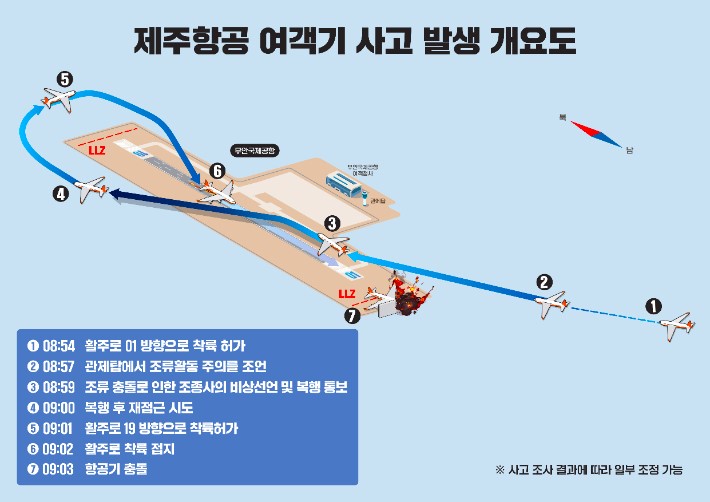


The tragic accident of the Jeju Air Boeing B737 plane on December 29, 2024 at Muan Airport, South Korea, may remain as a mystery after it has been announced that the cockpit voice recorder (CVR) and flight data recorder (FDR), also called as Black box, stopped recording during the final moments before the plane hits a concrete building.
The Ministry of Land, Infrastructure and Transport's Aviation and Railway Accident Investigation Committee (AIC) that is investigating the cause of the 'Muan Jeju Air disaster' announced on the 11th that "the black box of the Jeju Air plane did not store any records of the last 4 minutes before the crash."
"The analysis revealed that neither the CVR nor the FDR data were recorded during the four minutes prior to the aircraft's collision," the ministry said in a statement, referring to the two recording devices.
"The 7C2216 black box was initially analyzed in Seoul before being sent to the United States (US) National Transportation Safety Board (NTSB) laboratory after its data was found to be missing," the ministry explained.
The latest development was announced by the South Korean Ministry of Transportation on Saturday (11/1/2025).
Authorities said the Jeju Air black boxes were initially analyzed in South Korea. However, when missing data was discovered, the devices were sent to the US National Transportation Safety Board (NTSB) laboratory for further examination. The damaged flight data recorder has also been brought to the US for further analysis.
The transport ministry said the probe aims to understand why Jeju Air's black box recorders stopped working before the fatal crash that killed 179 people. The incident is recorded as the worst aviation disaster on the South Korean mainland.
The Air Force collected the voice recorder and flight data recorder from the scene on the day of the accident. The voice recorder was apparently intact, while the flight data recorder had damaged connectors between the power supply and data storage unit, it said.
"Plans are in place to investigate the cause of the data loss during the ongoing investigation into the accident ," the ministry said.
Jeju Air 7C2216, which was departing from Bangkok, Thailand, to Muan Airport, crashed while attempting to land. The plane landed without the landing gears extended, overshot the runway, then hit a concrete structure at the end of the runway and caught fire.
Before the collision, the pilot had reported to air traffic controllers that the plane had collided with birds and declared an emergency. However, within four minutes of the report, the plane crashed and exploded in flames.

As per the previous reports available, the voice recorder (CVR) was analyzed at the in-house test analysis center at Gimpo Airport, and it was reported that no data was recorded starting at 8:59 a.m., about 4 minutes earlier than 9:03 a.m. on December 29th of last year, when the accident occurred. This is around the same time that the captain of the accident plane shouted mayday (distress signal).
To me more specific on the scenario, at that time, the aircraft declared 'mayday' and 'bird strike' at 8:59 AM during the first landing attempt, rose again, made a short turn, and landed on the opposite runway at 9:02 AM. Then, it crashed into the localizer berm at 9:03 AM. This situation continued for 4 minutes.
It was initially reported that only the flight recorder was transferred because it was judged difficult to extract data from domestically, but the National Transportation Safety Board explained that the voice recorder was also transferred to the United States to secure reliability through cross-verification.
The investigation committee said,
“The CVR was converted into an audio file on the 2nd after data was extracted from the in-house test analysis center located at Gimpo Airport, and the recording was created on the 4th, and it was found that storage stopped about 4 minutes before the aircraft collided with the localizer,” and “The cause is currently unknown.”
South Korean authorities, working with U.S. safety regulators, are continuing to investigate the root cause of the crash. Investigators said the "black boxes" are vital to their investigation, but added that they will not give up trying to discover the reasons for the crash.
The investigation committee stated that
"CVR and FDR data are important data for the accident investigation, but the accident investigation is conducted through the investigation and analysis of various data, so we plan to do our best to determine the exact cause of the accident."
Key areas of focus include analysis of the cockpit voice recorder and flight data, reported bird collisions before the crash, and damage to Jeju Air's black box that led to data loss.
Meanwhile, the two investigators from South Korean side who were dispatched to the United States to analyze the FDR and CVR are scheduled to return home on the afternoon of the 13th.
Two cabin crew members in the aft Galley section, which is in the tail area of the aircraft, were rescued with injuries. However, most of the other passengers and crew did not survive.
This accident is the deadliest accident in Korean aviation history, and raises many questions about safety standards.
Choe Sang-mok, Deputy Prime Minister and Minister of Strategy and Finance, said on the 30th December last year,
"In order to prevent the recurrence of aircraft accidents, the Ministry of Land, Infrastructure, and Tourism has instructed the Ministry of Land, Infrastructure, and Tourism to conduct safety inspections related to aircraft operators."
This tragedy has dealt a huge setback to Jeju Air, which has maintained a stable record so far. The Boeing 737-800 is widely used worldwide and boasts a high level of safety. However, as with all aircraft, thorough maintenance and regular inspections are essential.
You may like to read....
